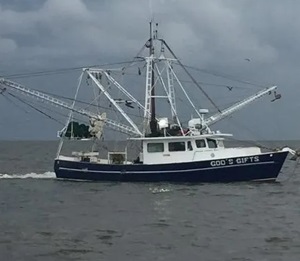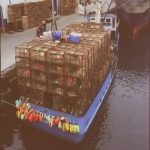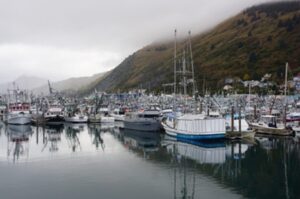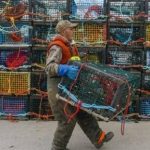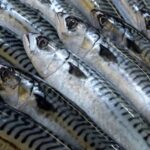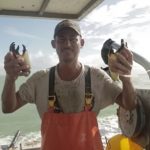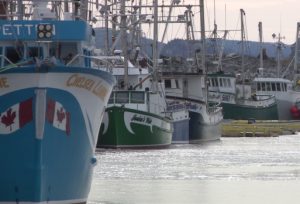Tag Archives: US Shrimp Industry
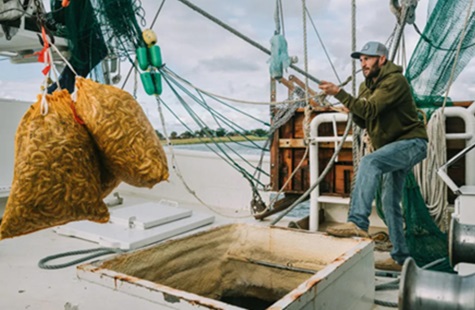
Coastal Georgia shrimpers fear loss of industry as foreign seafood crowds market
“Just when you think it can’t get any worse, it gets worse,” said Pat Mathews, the owner of the Lazaretto Packing Co. on Tybee Island, as he walked away from a truck idling in the loading zone. Early on a Monday morning in October in the height of shrimp season the driver had come to pick up a load of freshly caught shrimp from the James W. Salyers, a shrimp boat captained by David Attia. The driver delivered disappointing news, informing Pat that this would be the last load he would be able to pick up for the foreseeable future. The Mathews family has been in the seafood business for over a century. Where they once owned several seafood markets, their business now centers on the dock they own at Tybee, one of the few hubs of the industry that has been an iconic business on Georgia’s 100-mile coast. >>click to read<< 10:53
Lawmakers form Seafood Caucus to help Louisiana fishermen
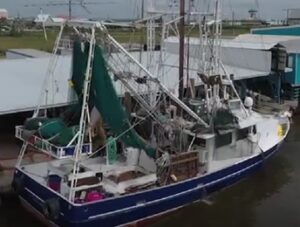 Consumers likely don’t think twice about where the shrimp or seafood bought at grocery store comes from, but Louisiana fisherman—and now federal lawmakers—are asking people to pay attention. “We’re losing an industry and a culture and a way of life in Louisiana and across the country,” said Acy Cooper, who comes from a long line of shrimpers. He says what was once a reliable profession has now become heartache. It’s not just a problem in Louisiana—which is why lawmakers from all four of the country’s coasts are joining together to find a solution. Video, >>click to read<< 10:28
Consumers likely don’t think twice about where the shrimp or seafood bought at grocery store comes from, but Louisiana fisherman—and now federal lawmakers—are asking people to pay attention. “We’re losing an industry and a culture and a way of life in Louisiana and across the country,” said Acy Cooper, who comes from a long line of shrimpers. He says what was once a reliable profession has now become heartache. It’s not just a problem in Louisiana—which is why lawmakers from all four of the country’s coasts are joining together to find a solution. Video, >>click to read<< 10:28
Beaufort’s shrimping industry on the brink. Local boats sit while imported catch floods market
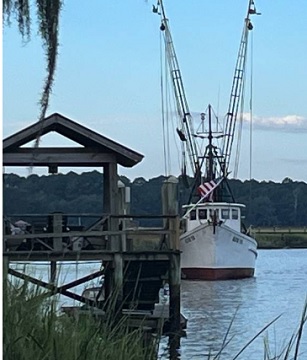 Thursday at Village Creek on St. Helena Island was another picture postcard-worthy morning with an American flag lilting in a slight southeast breeze near the shrimper Gracie Bell — idly tied to the dock. At Sea Eagle Market, a catch of shrimp swept up in the nets of trawlers in recent days are being processed by small group of dockside workers. They clean the valuable seafood crop harvested from waters as far away as North Carolina to the northeast coast of Florida before being sold locally and up and down the Palmetto State’s coast. After this recent harvest was completed, the boats returned, as they always do — to Village Creek, home base for shrimping on Fripp and Hunting Islands in Beaufort County and beyond. Against this serene backdrop, a storm is brewing that threatens destruction. It is not the threat of foul weather, these shrimpers have seen generations of bad weather days. The storm brewing is economic for the community of shrimpers and related businesses. >click to read< 10:10
Thursday at Village Creek on St. Helena Island was another picture postcard-worthy morning with an American flag lilting in a slight southeast breeze near the shrimper Gracie Bell — idly tied to the dock. At Sea Eagle Market, a catch of shrimp swept up in the nets of trawlers in recent days are being processed by small group of dockside workers. They clean the valuable seafood crop harvested from waters as far away as North Carolina to the northeast coast of Florida before being sold locally and up and down the Palmetto State’s coast. After this recent harvest was completed, the boats returned, as they always do — to Village Creek, home base for shrimping on Fripp and Hunting Islands in Beaufort County and beyond. Against this serene backdrop, a storm is brewing that threatens destruction. It is not the threat of foul weather, these shrimpers have seen generations of bad weather days. The storm brewing is economic for the community of shrimpers and related businesses. >click to read< 10:10






